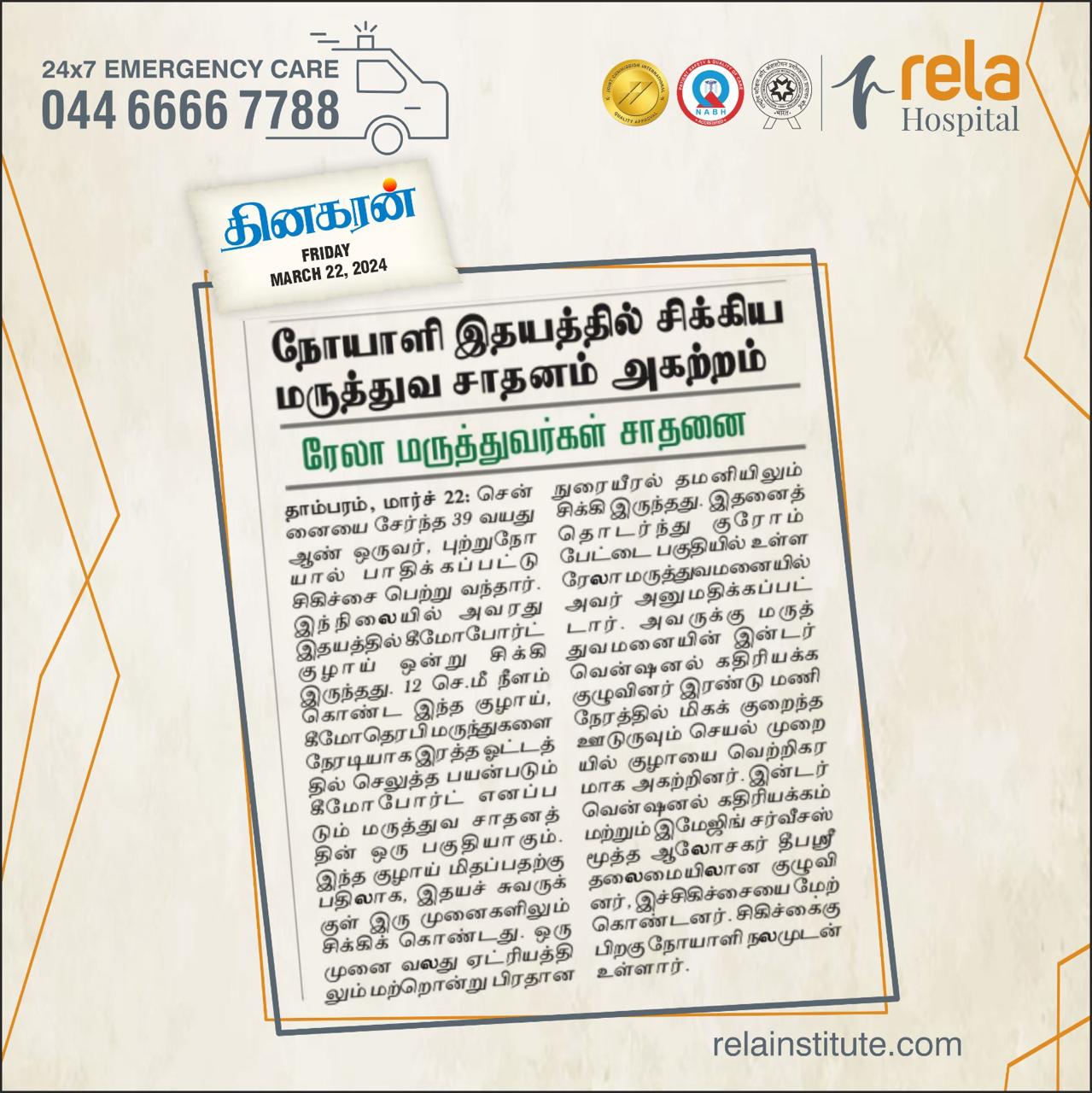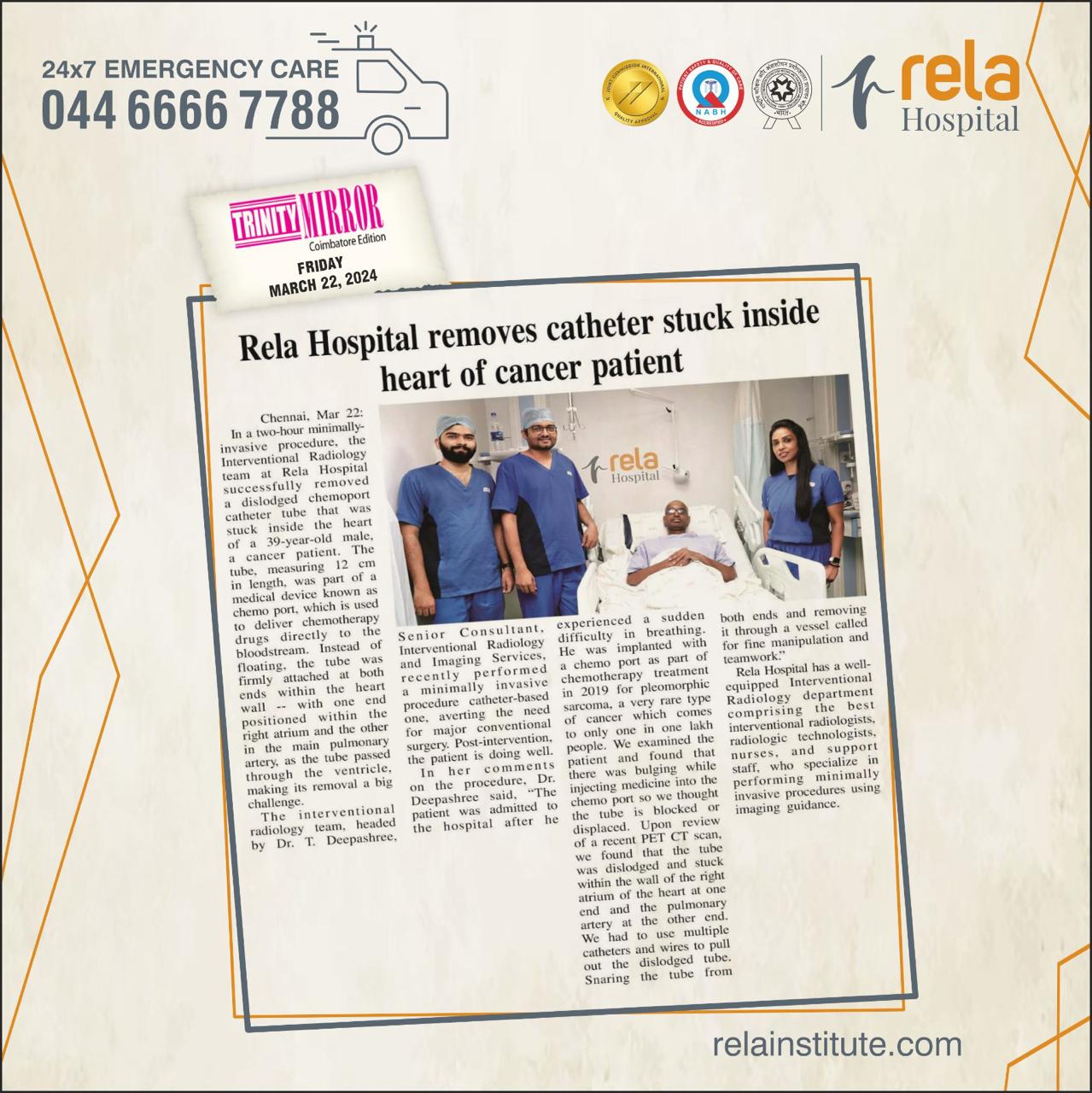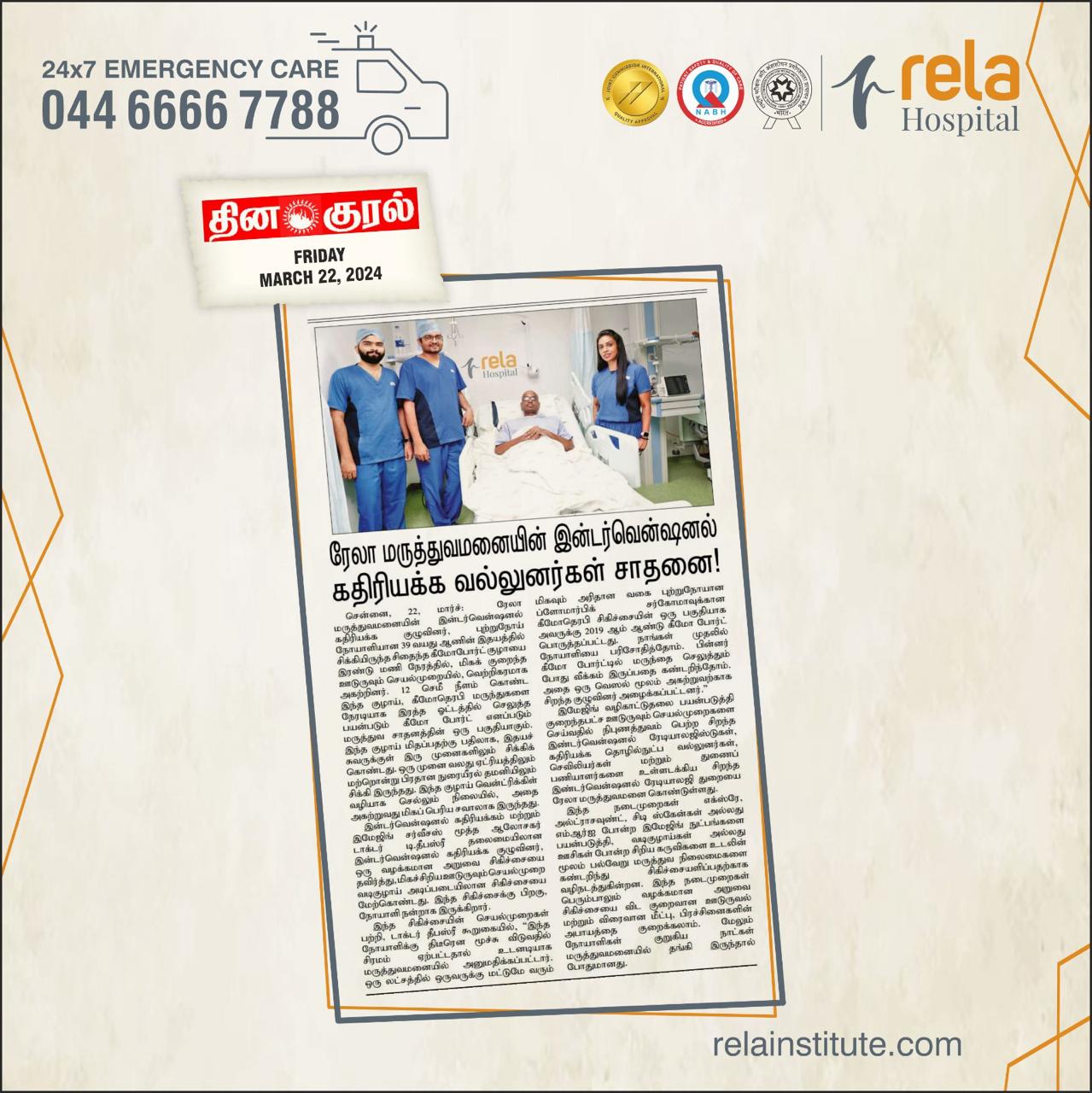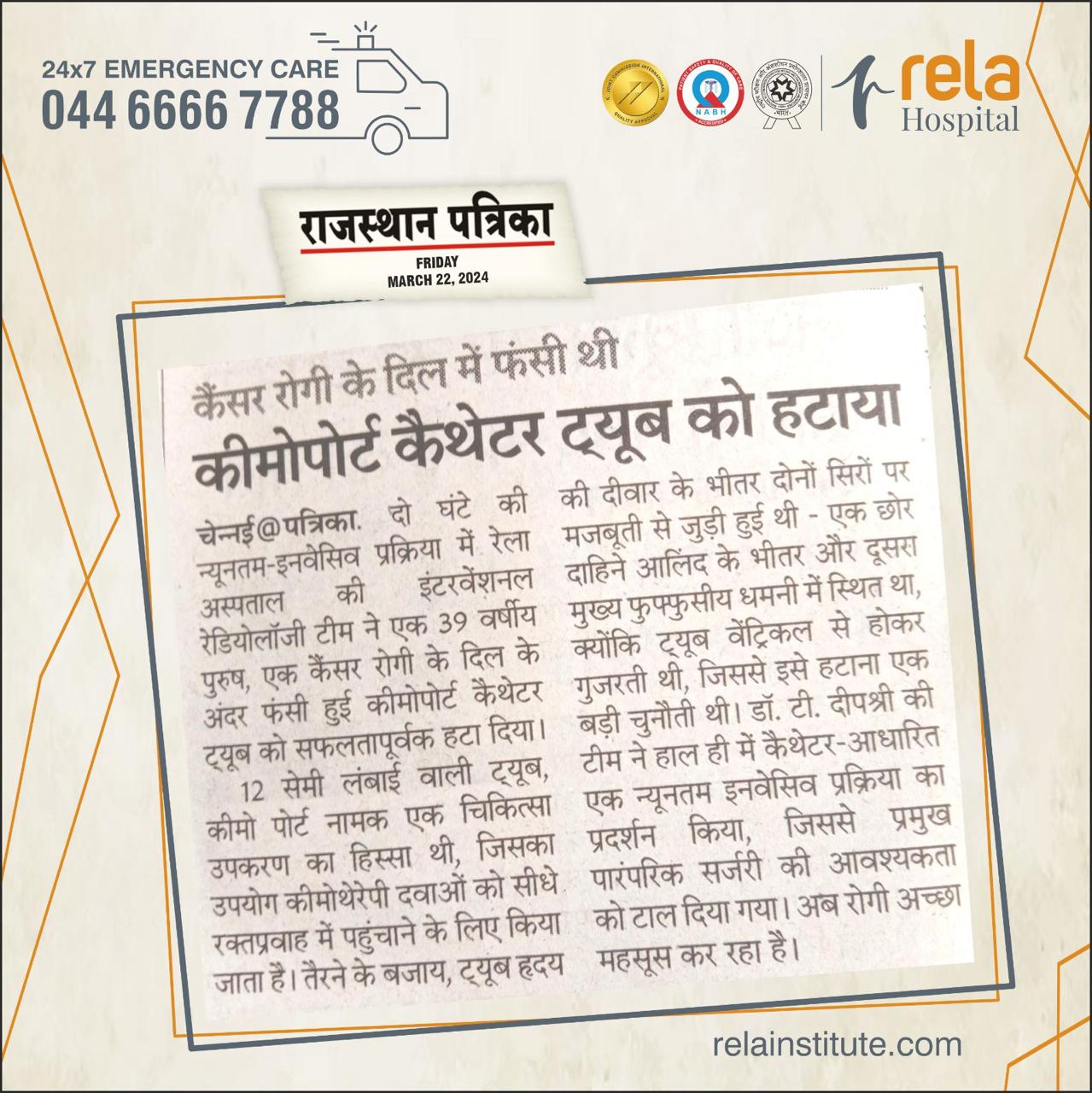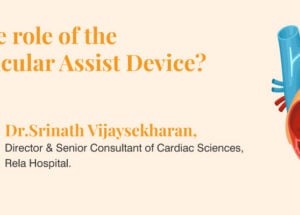Interventional Radiologists at Rela Hospital Remove Dislodged Medical Catheter Stuck Inside the Heart of Cancer Patient
March 23, 2024
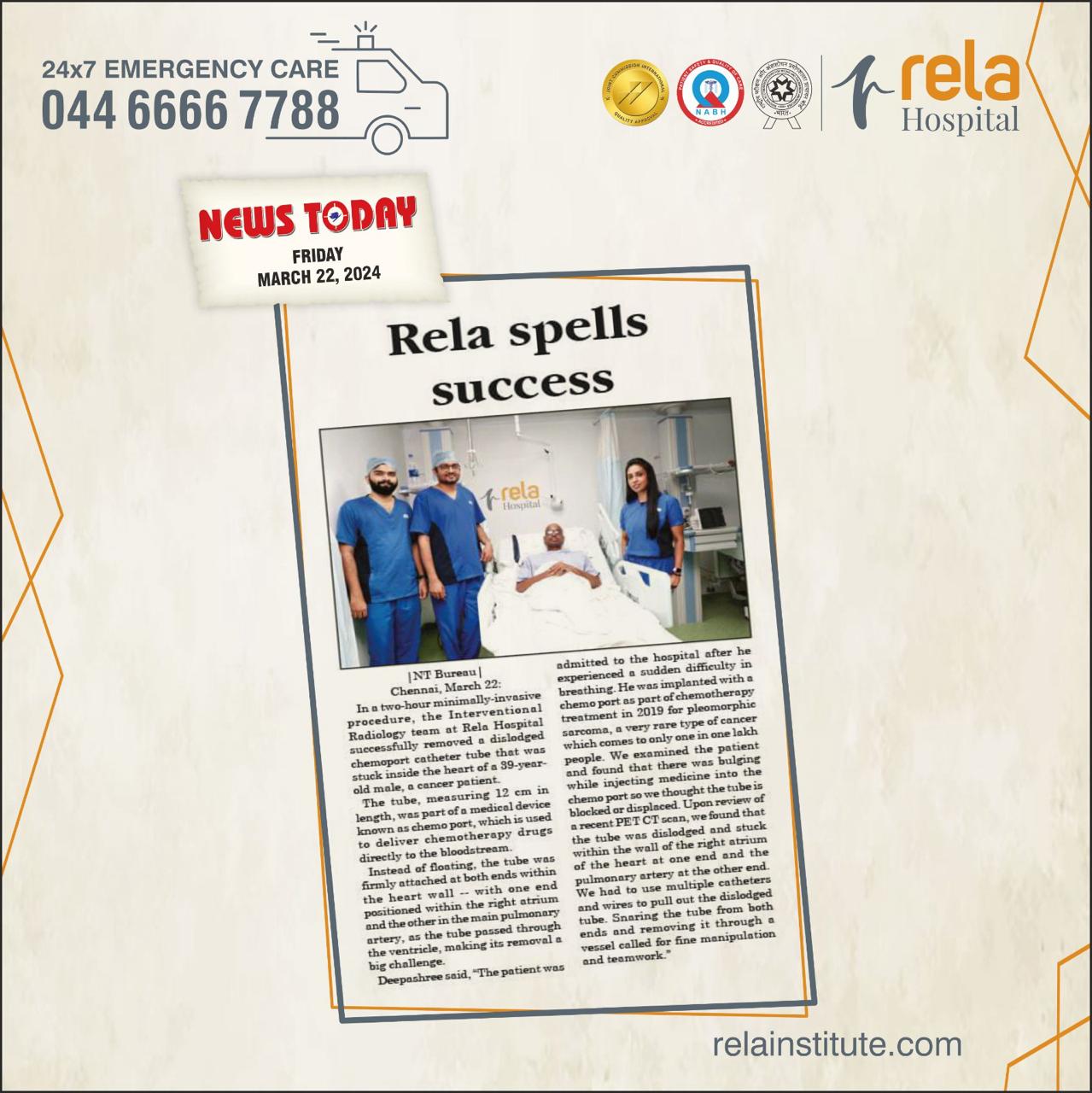
- Chemoport catheter tube dislodgement is rare. Complicating matters further, the tube was not freely floating; instead, it was lodged at both ends within the walls of the heart.
Chennai, March 22nd 2024: In a two-hour minimally-invasive procedure, the Interventional Radiology team at Rela Hospital successfully removed a dislodged chemoport catheter tube that was stuck inside the heart of a 39-year-old male, a cancer patient. The tube, measuring 12 cm in length, was part of a medical device known as chemo port, which is used to deliver chemotherapy drugs directly to the bloodstream. Instead of floating, the tube was firmly attached at both ends within the heart wall — with one end positioned within the right atrium and the other in the main pulmonary artery, as the tube passed through the ventricle, making its removal a big challenge.
The interventional radiology team, headed by Dr. T. Deepashree, Senior Consultant, Interventional Radiology and Imaging Services, recently performed a minimally invasive procedure catheter-based one, averting the need for major conventional surgery. Post-intervention, the patient is doing well.
A chemo port, also known as a port-a-cath, is a type of central venous access device that is used to draw blood and give treatments, including intravenous fluids, blood transfusions, or drugs such as chemotherapy and antibiotics. It consists of two main parts: a port and a tube. While the port, a small reservoir, sits just under the skin in the chest area, the tube from it is inserted into a large vein. Through this arrangement, a drug first reaches the port from where it travels through the tube to reach the bloodstream directly. The device, which can work for several weeks or months, eliminates the need for repeated vein punctures.
In the case of the patient, the chemo port was fixed in 2019. As it has become defunct now, due to tube dislodgement, it may have to be removed and a new one will have to be implanted, if the patient requires chemotherapy to treat his illness: pleomorphic sarcoma, a type of cancer that originated in his left thigh, and swiftly spreaded to the lungs.
In her comments on the procedure, Dr. Deepashree said, “The patient was admitted to the hospital after he experienced a sudden difficulty in breathing. He was implanted with a chemo port as part of chemotherapy treatment in 2019 for pleomorphic sarcoma, a very rare type of cancer which comes to only one in one lakh people. We examined the patient and found that there was bulging while injecting medicine into the chemo port so we thought the tube is blocked or displaced. Upon review of a recent PET CT scan, we found that the tube was dislodged and stuck within the wall of the right atrium of the heart at one end and the pulmonary artery at the other end. We had to use multiple catheters and wires to pull out the dislodged tube. Snaring the tube from both ends and removing it through a vessel called for fine manipulation and teamwork.”
Rela Hospital has a well-equipped Interventional Radiology department comprising the best interventional radiologists, radiologic technologists, nurses, and support staff, who specialize in performing minimally invasive procedures using imaging guidance. These procedures involve using imaging techniques such as X-rays, ultrasound, CT scans, or MRI to guide small instruments, such as catheters or needles, through the body to diagnose and treat a variety of medical conditions. These procedures are often less invasive than traditional surgery and may offer quicker recovery times, reduced risk of complications, and shorter hospital stays for patients.
